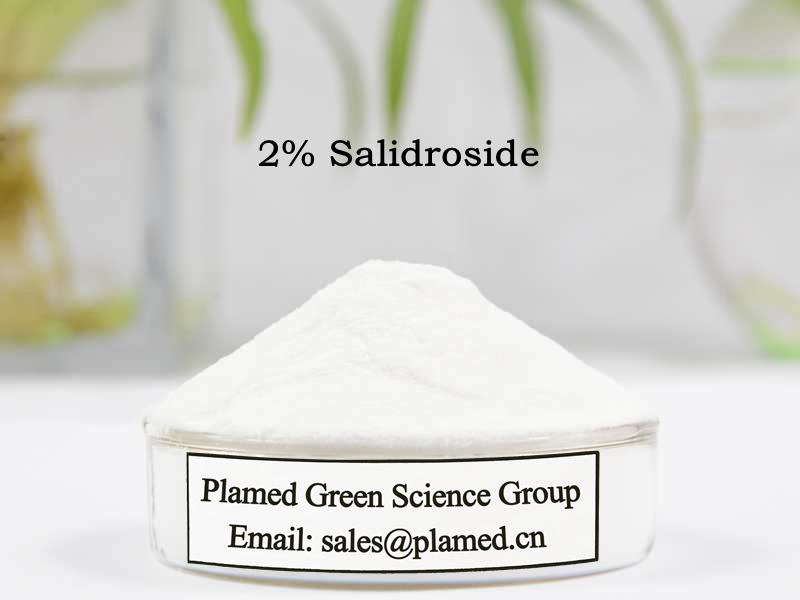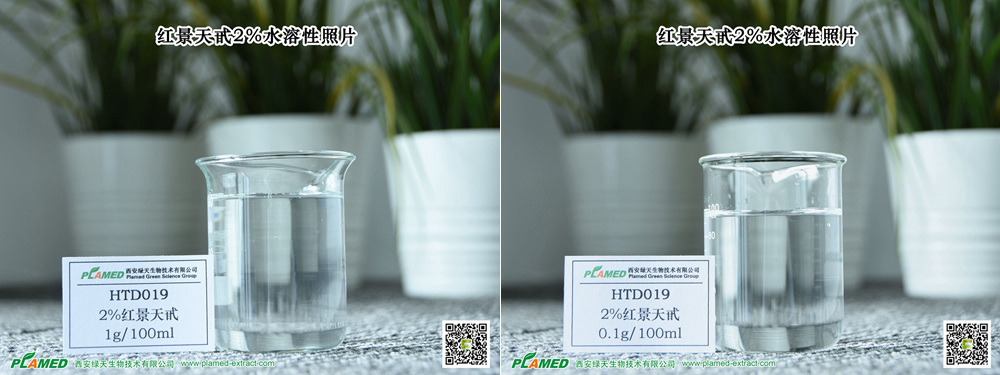Rhodiola is a perennial herb or sub-shrub wild plant. It widely distributes on high-altitude rocks and cliffs in Europe, Asia and North America. Rhodiola has a long using history in China. As far back as the Qing Dynasty, rhodiola was used as a nourishing and strong medicine to eliminate fatigue and resist cold.
Nowadays, rhodiola rosea extract is used as cosmetic ingredient for skin care. Its main active constituent is Salidroside. It has anti-oxidation, whitening and anti-radiation effects. Cosmetics are mainly made of dried roots and rhizomes of Rhodiola.
Rhodiola Rosea Extract Effects in Cosmetics
- Anti-aging
Rhodiola has a stimulating effect on fibroblasts in the dermis. It can promote the division of fibroblasts, and secrete collagen while also secreting collagenase. Thereby the original collagen decomposes; but the total secretion is greater than the amount of decomposition. Collagen forms collagen fibers outside skin cell. The increase of collagen fibers indicates that rhodiola has a certain anti-aging effect on skin.
- Skin whitening
Rhodiola rosea extract inhibits tyrosinase activity and reduces its catalytic rate. Thereby it can reduce melanin formation in skin, and achieves skin whitening.
- Sun protection
Rhodiola rosea extract has a protective effect on cells; and its protective effect is stronger under light conditions. Salidroside absorbs light energy and converts it into energy that is not toxic to cells, thus protecting skin cells. Salidroside can significantly inhibit increase of inflammatory cytokines caused by ultraviolet radiation. It has obvious protective effect on skin ultraviolet radiation damage.
An experimental study on sun protection function of rhodiola found that: (1) a cream made of 0.2% rhodiola rosea extract has a sun protection factor of 2.5-3.0. (2) A cream containing 0.2% ginseng extract has a sun protection factor of 2.0-2.5. It indicates that sunscreen ability of rhodiola is higher than that of ginseng. (3) A cream containing 0.1% rhodiola extract and 0.1% ginseng extract has a sun protection factor of about 4.0.
Plamed Green Science Group has developed cosmetics grade rhodiola extract through continuous technological upgrading:
- 2% baicalin, a highly active ingredient;
- Plamed develops DMR double membrane filtration technology. The technology makes water solution transparent and clear after dissolution, and no precipitation.
- Plamed adopts WSK decolorization technology that makes product’s color lighter and finer.


Figure: Water Solution of Rhodiola Crenulata Extract
Rhodiola Rosea Extract Uses in Cosmetics
Plant source: rhodiola root
INCI Name: RHODIOLA CRENULATA ROOT EXTRACT
Appearance: white powder
Solubility: water solubility
Dosage: 0.1-3%
Applicable Products: toner, cream, lotion, emulsion, mask, sunscreen, etc.
Application Effects: anti-aging, skin-whitening, sun protection
Uses method: Rhodiola rosea extract has great water solubility. It can be added to cosmetic system as an aqueous phase component. The heating temperature is generally 40-90°C.
Rhodiola has the reputation of “Oriental God Grass”, “Golden Plant” and “Plateau ginseng”. The active ingredient salidroside plays a major role in anti-aging, skin whitening and anti-radiation. Rhodiola Crenulata Extract can exert skin care effect in cosmetics.
Plamed aims to develop natural cosmetics raw materials. Plamed Rhodiola Crenulata Extract is high content and low cost.
If you want to buy Rhodiola Crenulata Extract , please contact us in following way.

Rae Wong
Tel: +86-29-8821 5350
Mobile: +86 180 6683 3765
Email: sale@plamed.cn
Whatsapp: +86 180 6683 3765
Skype: plamed06
Wechat: 18066833765








